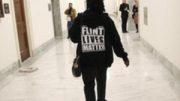A federal judge in Seattle has rejected the Obama administration’s effort to dismiss a class-action lawsuit that could force the government to provide attorneys to thousands of children who face deportation in U.S. immigration courts.
U.S. District Judge Thomas Zilly has set the outline of the class of child immigrants who will be represented in the lawsuit, and told the coalition of immigrants-rights group that filed the lawsuit in 2014 to be prepared for a three- to five-day bench trial Sept. 12.
The trial will impact deportation cases of thousands of immigrant children, many fleeing oppression and persecution in Central America.
Department of Justice (DOJ) officials, while saying they sympathize with the plight of many of the young immigrants, have argued that providing legal counsel for every child facing so-called “removal” after being found to be in the U.S. illegally could cripple the entire U.S. immigration system.
Deputy Assistant U.S. Attorney General Leon Fresco, who flew in from Washington, D.C., to argue the government’s case last month, said there is no money for it.
DOJ spokesman Peter Carr said Thursday the department had no comment on Zilly’s ruling.
The lawsuit was filed by a coalition of immigrants-rights groups, including the American Civil Liberties Union (ACLU) offices in Seattle and Los Angeles, and the Northwest Immigrant Rights Project. The government has suffered several setbacks in the litigation, both in the courtroom and in the court of public opinion after a senior immigration judge, Jack Weil, said in a deposition in the lawsuit that he had “taught immigration law literally to 3-year-olds and 4-year-olds” who were facing deportation.
Evidence has shown that many of the children travel thousands of miles alone, fleeing persecution or trying to join up with family in the U.S.
“It takes a lot of patience,” said Weil, who is in charge of instructing immigration judges throughout the country. “They get it,” he said.
Current law does not require that children be represented by a lawyer during deportation hearings, but it does call for a “full and fair hearing” before an immigration judge.
In his ruling, Zilly flatly rejected the DOJ assertion that certain due-process rights afforded by the Fifth Amendment simply don’t apply to immigrants who have not been formally “admitted” into the U.S.
In making that argument, the DOJ cited legal precedents that Zilly found don’t say what the government wanted them to.
“None of these decisions … stand for the proposition that aliens who have not been ‘admitted’ into the United States are not entitled to any of the protections afforded by the Due Process Clause of the Fifth Amendment,” Zilly wrote. “Indeed, most of the cases cited by (the DOJ) say quite the opposite.”
Zilly also sketched out the rough parameters of the types of juvenile deportation cases that will eventually encompass the class that will be represented by the lawsuit.
Stephen Kang, an attorney with the ACLU’s Immigrant Rights Project in San Francisco, said there is no doubt that it will ultimately involve “thousands and thousands” of children who are facing deportation.
Zilly acknowledged there are still issues that need to be resolved at trial. The government has argued there is a distinction between immigrant children who have sneaked into the country and are being deported, and those who are still in the deportation process.
“The question the court faces in this case is not whether plaintiffs have procedural due process rights. Clearly they do,” Zilly wrote. But there may be a distinction between the rights afforded children in different parts of the deportation process, he said.
Source: www.seattletimes.com




